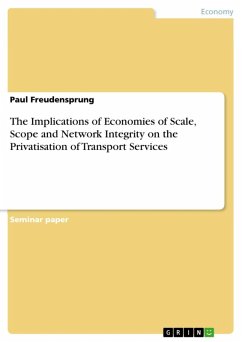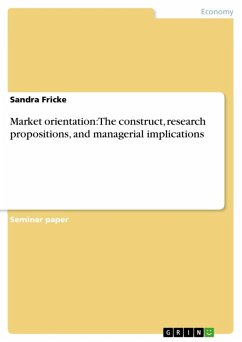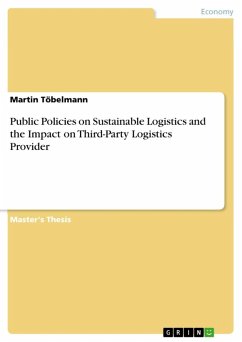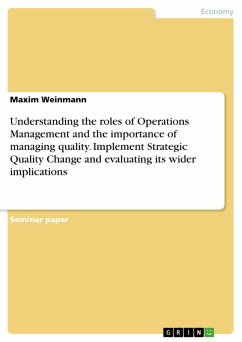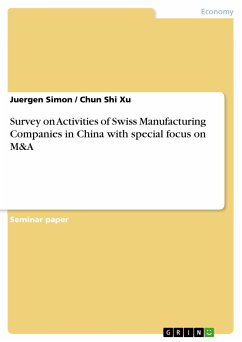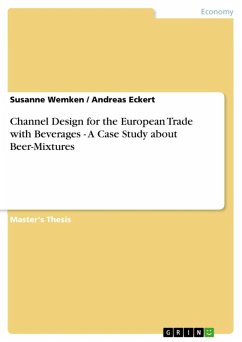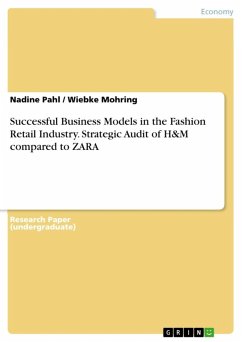
Key challenges for European logistics companies and implications for their M&A strategy (eBook, ePUB)
Versandkostenfrei!
Sofort per Download lieferbar
36,99 €
inkl. MwSt.
Weitere Ausgaben:

PAYBACK Punkte
0 °P sammeln!
Diploma Thesis from the year 2008 in the subject Business economics - Business Management, Corporate Governance, University of Applied Sciences Kufstein Tirol, language: English, abstract: The world is constantly changing, particularly in booming industries such as logistics. Globalisation, increased outsourcing, customers' demand for global coverage and integrated services are just a few examples of how the external environment affects logistics companies. Based on an external audit for logistics companies with focus on competitive forces, the thesis answers three main questions, which step-b...
Diploma Thesis from the year 2008 in the subject Business economics - Business Management, Corporate Governance, University of Applied Sciences Kufstein Tirol, language: English, abstract: The world is constantly changing, particularly in booming industries such as logistics. Globalisation, increased outsourcing, customers' demand for global coverage and integrated services are just a few examples of how the external environment affects logistics companies. Based on an external audit for logistics companies with focus on competitive forces, the thesis answers three main questions, which step-by-step answer the main question of how logistics companies should react to the changes in the external environment. Firstly, based on market estimates about future growth rates of the industry it is assessed whether a growth strategy is a feasible grand strategy for logistics companies. The outcome is that the logistics industry is booming and therefore a growth strategy is feasible. Secondly, it is assessed whether mergers and acquisitions (M&A) are a feasible growth option by conducting an event study of logistics M&A transactions for the past decade. The results show that it can not be proven that logistics M&A destroy value for the acquirer and in some cases it can even be proven that they enhance the value of the acquirer. Therefore, it can be concluded that M&A are a feasible growth option for logistics companies. Thirdly, the main challenges for logistics companies from the external environment and the implications for their M&A strategy are discussed. The largest challenges within the industry include the rise of BRIC countries and the integration of freight forwarding and contract logistics. An expansion to China for example is mainly done organically due to the lack of suitable takeover targets, while the combination of freight forwarding and contract logistics is often done through M&A. Capital markets react positively to an integration of the two industries and strategic reasons support this combination too. Shipping lines and railway companies are expanding into logistics competing with logistics companies for the business as well as in M&A tenders. A key in the logistics industry is to get direct access to customers. Shipping lines and railways expanding into logistics and freight forwarders expanding into contract logistics are examples of securing access to customers to realise cross-selling potentials.
Dieser Download kann aus rechtlichen Gründen nur mit Rechnungsadresse in A, B, BG, CY, CZ, D, DK, EW, E, FIN, F, GR, HR, H, IRL, I, LT, L, LR, M, NL, PL, P, R, S, SLO, SK ausgeliefert werden.




